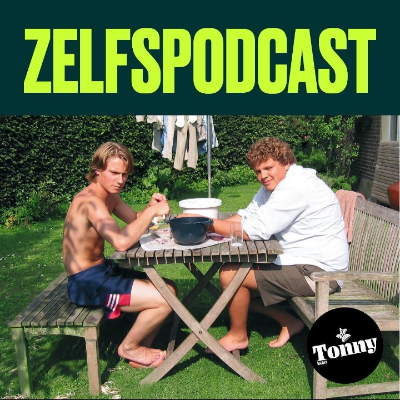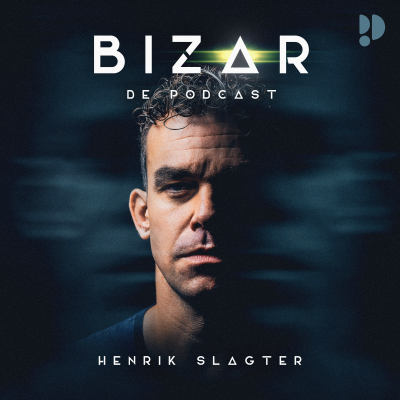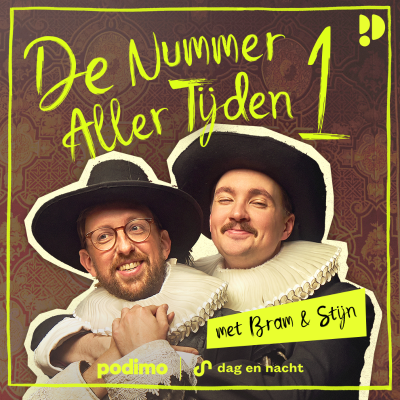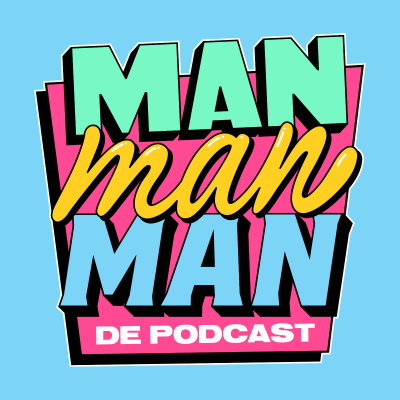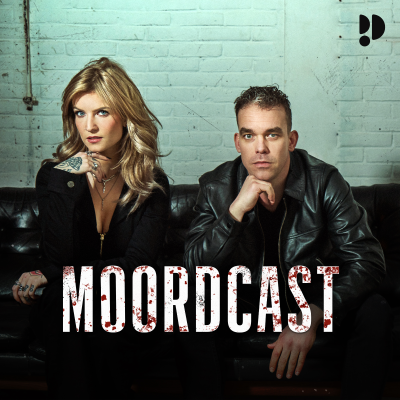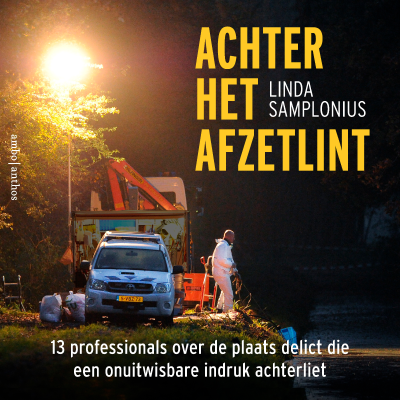
High Finance Podcast
Podcast door Bigfoot Podcast Network
Podcast by Bigfoot Podcast Network
Probeer 7 dagen gratis
€ 9,99 / maand na proefperiode.Elk moment opzegbaar.
Alle afleveringen
14 afleveringenAnother picturesque farm in Oregon, this one tucked in between mountains and a river, hidden and peaceful, with 20 llamas to greet you. It’s where Nathan Howard, his brother and their crew grow their medicinal cannabis with the intent to go completely off the grid. If their success continues, they will branch into rec as well, not so much for the financial opportunity, but for the opportunity to invest back into the beautiful rural community they live in. But Nathan leads two lives: One as the farmer/partner, the other as a political advocate as he moved into the Portland Mayor’s office as part of the crew. There, he can educate and advise as the new Mayor helps shape policy for the legal industry. How did cannabis find you? Nathan’s oldest brother born with a NF, a rare disease causing abnormal cell growth, giving him a large number of tumors. CBD proved to help relieve both his pain and epilepsy. It also cut down the pharmaceuticals he needed. This was the impetus for the CBD farm in southern Oregon. The science is catching up. Farm is tucked away in a small town. Pack of llamas, part of the lease on the land. Right now, they are bringing the farm into compliance and things look like a war zone. Would you move into the rec side of cannabis? Would have to talk to partners, but probably. The more medicine they produce the more successful they will be. They would like to give about 7% back to their county to help support the county and rec would help accomplish that. Have been preparing books and information for interested investors. How has he been finding investors? Outside of friends and family, they started making a list. The list if people who are outside of their known community. The opportunity is new wealth in the rural counties. What makes your company attractive to investors? Lower operating costs than many other growers. Long term projections of being completely off the grid. Right now they are indoor and outdoor, they may move to all greenhouses. 74% of angel investments are made on gut decisions. What about your company made the investors believe in you? They saw the confidence that the team had the will to push on through the tough times and that confidence transferred to the investors. How did you end up in the small town? Family had always loved farming. Brother helped out in Portland neighbor farmers’ markets. About 7 years ago, he visited the small town and the cannabis gardens and he decided to make a life there. Visiting his brother made Nathan fall in love with the area. The farm is a long drive from Nathan’s Portland-based job, but it’s part of the reason there is peaceful beauty when people get there. Climate change has made for hotter summers and more forest fires. The heat and smoke has made everyone think that maybe they will need to move everything indoors. And they may need to be breeding plants that can stand the heat better. As part of a campaign team for Ted Wheeler, former State Secretary of the Treasury and apparent next Mayor of Portland, what will Portland’s policy be? He will be an advocate for the cannabis entrepreneurs.
It’s not all about yield and pounds, it’s about a sustainable, quality product. Robert Elam knows because he and his partners are constantly experimenting to deliver rich, popular strains of cannabis from a grow farm that emphasizes organic growth and a small production footprint. Robert and company of friends have taken patient years to construct their own grow facility and to do it on their own capital rather than take on partners who might not share their values. And they are their own distributors, so Robert is in constant contact with the dispensaries who report what the consumer wants and demands. How did cannabis find you? Young. Found early in school, started to grow as a young adult. Has an organic landscaping company, so plants are a natural outgrowth. But also has a business degree, so when he got his first job, it really catapulted him into the industry. Came to Oregon because of a woman - to whom he is now married - who lived in Oregon and with whom he reconnected. Was tough at first, took six months to get a job and now is in a gorgeous facility. Was approached by person now his business partner who found a great space on Craigslist. They put in their life savings, did as much of the work by themselves as they could and built it out slowly and got rooms on line one at a time. As money came in, they expanded so they have done it all on their own. Partner had a structural engineering degree, which was a great asset. Keep up on lighting and atmospheric controls. Also try to keep footprint at a minimum for electricity and water usage. The Team: Most have been friends for years. Has known his business partner for eight years, have known gardeners for years as well. Small team with lots of knowledge and work collaboratively. Use a trellis system. Stake plants out when they are ready for their potting, then spread out to get the middle of the plant exposed. Three plants per cart and have large plants with big canopy. Only flower the number of plants for whom they have cards. Working with state regulatory bodies has been pretty smooth so far. Application has been accepted and waiting for site inspection. Going to change grow routine to smaller plants but more plants. Why? Because vegetative time to get large plants is months, so want to reduce the time and improve yields. Also, more manageable and less time for disease to set in before harvest. And large plants more apt for branches to break and lost yield. Had opportunity to test two identical grow rooms, one synthetic and one organic. Synthetic yield was superior but organic quality was superior. So decided to go all organic. Fit with their personal lives and professional goals. Quality first, then yield. Other way around much more difficult. If you’re not doing the breeding yourself, you must be incredibly careful of taking another company’s cuttings. Cherry Pie, Cotton Candy Cush have been really popular strains. Try to grow only the “incredible” strains. Currently in 8-10 shops. Started out with 33 but had to limit quantities. Also added difficulty with dealing with so many shops. So current number is more manageable. They do their own distribution. What’s it like being a grower working with the shops? At the end of the day, it’s obvious what strains the consumers want, which allows the grower to make selections. Don’t get that feedback unless you deal with the dispensary directly as Robert does. If you are only in the garden, you just don’t hear from the consumer. Leafly good publication for a consumer who is a novice. Not anything very useful for dispensaries and growers. Won DOPE award for best producer. Have won others.
Tax expert and a leader in shaping the financing and structures of legal cannabis companies, John Magliana talks about the practical aspects of dealing with the 280E tax code section, which has huge impact on the operation and success of those involved in the legal industry. In particular, John emphasizes setting up your company - whether grower, processor or dispenser - properly. Doing it correctly in the beginning can save an owner tons of money in the long run. Also, great record keeping not only helps any business run better, it is especially important to a cannabis company for credibility when challenged by the IRS. Section 280E, Internal Revenue Code, if you “traffic” in illegal substances, normal business expenses are not allowed. It is a gateway issue: If you get audited by IRS, they get an in-depth look at your business. Then info can spread to state level and if inventory or other issues appear, there is potential liability. Stems from a drug dealer case where the dealer was able to write off certain business expenses after being caught. So congress passed 280E to blunt the trend. Key is cost of goods sold, because that is a write-off. Very difficult for a dispensary because direct cost of goods sold not necessarily written off, such as labor. But for a grower it’s different, because labor is involved in growing the plant. Very sticky. SAD, John’s acronym. S: Segregate what is trafficking and what is not. A: Allocation of cost of goods sold. D: Diversify your stream of income to show you are not solely a trafficker. Get set up correctly to begin: You could be paying an 85% tax rate while your competitor is paying 35%, just because they have set up the accounting correctly. One technique: Set up an employee leasing company, make it a profit center and when you can allocate their labor to direct cost of goods sold, you can get the write-off. Murky: When employee is selling T-shirts, pipes and so forth, they are not trafficking. However, when they sell product, they are involved in trafficking. Set up the store so there is a separate location between product and non-product items. So allocate the employee’s time between the two. Practical Key: Have clean, good records because when there is a dispute, the auditors will view good records as credibility and more likely to believe the write-off assertions. There is a good side to 280E: The industry is only going to grow and be respected if the bar to operations is kept high. It screens out the unprofessionals that are the root of the bad stigma. The best thing to happen to the industry is rec. Why? Because anyone who wants to do business legitimately, they need to get a license, they must pay taxes and there will be pressure on the mavericks to pay their fair share. Also, with investors looking to get into the industry, 280E disclosures need to be up to date and accurate or investors will have recourse. This helps keep the industry clean. Be careful of pass-through company structures (LLCs, Sub Ss), as IRS can go after personal income taxes. Being a C corp makes it easier because the company is potentially liable, not the individuals. Always file a non-fraudulent return, then the clock starts on statutes. Keep returns for six years. Keep all transactions transparent to your bank. Allow them to check on daily sales if they want. Use a company credit card for everything you do. Receipt and description. Nevada good state to register IP for larger companies. No state income tax. Will there be a follow up to 280E? If marijuana is taken off schedule 1 AND 2, 280E will not apply. Other “fixes” would be to say 280E does not apply if company is in compliance with STATE laws.
Music festival promoters come from all angles, but Levi’s perspective is very clear: To promote positive changes in the laws to recognize the huge responsible use of cannabis products. Levi heads up the Seattle Hemp Festival and talks to us from the road in Medford, Oregon as the troupe takes the show on the road. The Seattle show has enjoyed amazing success becoming a respectable gathering that has been incident-free and serves to be a focus for serious cannabis users to enjoy themselves, list to a variety of music, and discuss successful legalization. How did cannabis find you? Volunteered for Seattle Hemp Fest. Had an opportunity to book the bands and fell in love with the culture. First Hemp Fest (2004/5) brought in some heavy rock music. Music and marijuana go hand in hand! Fest has grown to five live musical stages. Everything from blues, to punk to reggae. Getting city leaders to come in and talk. 400 - 500 vendors. Will be adding an app so can view the broadcast for those who don’t want to be in a crowd or can’t get there. Since legalization, lots more serious people attending, talking more about the laws. Being on the road and crossing state lines on the tour has caused everyone to be hyper-aware of each state’s laws. The medical card can be honored or not. Early festivals really pushed the buttons, including bringing cannabis bushes on stage. Have had lots of celebrities show up but couldn’t publicize them because crowds already so packed. So just surprise the audience with them. In 24 years, no violent incidents, even with 100,000 plus people going through the Festival. Proof there can be a peaceful festival. And when they leave, all the trash is cleaned up leaving the venue pristine. Set up a licensing with a Las Vegas group, trying to set up with people in other states that legalize. Levi hasn’t seen the “grocery store” setup in Oregon that they have in Washington. However, that is because of different regulations. Is there a difference between product offerings in Oregon and Washington? Levi thinks both states are offering high quality product and doing a great job in production. Glass blowers are creating fabulous pipes that are works of art. Don’t allow lighters or torches at festival. Most parks are smoke-free, but exceptions are made. Everyone is a volunteer, so last thing they want is to be taking care of people who “dab out”. Keeping the festival mellow and for networking and enjoying music is the mission. Purpose is to make a positive change in the laws. Lyon Pride Music - app to get cannabis related music.
There’s more to being in the cannabis business than passion for the industry, much more. You have to be a successful business person and you have to market your business professionally to demonstrate how your product is different. Whether you’re a dispensary, processor or producer, you have to develop and keep your tribe. This is the sermon from Alexa Divett, cannabis advocate who coaches cannabis entrepreneurs into the business world. As those entrepreneurs are creating an industry, Alexa is their sherpa, guiding their brand development and helping them through the stress and trauma while traversing this wild journey called legalization How did cannabis find you? Alexa has been in the industry longer than she would like her parents to know! However, she did find cannabis for medical ailments superior to pharmaceuticals and that’s when she became an advocate. Her parents were entrepreneurs, so with her background in PR, it was a natural to go out on her own. What was fascinating to her was the opportunity to create an industry versus sitting in a cubicle executing someone else’s vision. At Southern Oregon University, she thought she was going to be an environmental scientist, but she wasn’t good at math. so she transitioned into journalism with a PR emphasis. Got some great breaks right after college with Trillium Services in Portland in fundraising. But the money wasn’t quite enough, so she bartended while learning about digital media when the discipline was being born. She cut her teeth on webinars learning about it. Started a creative/PR company but realized business coaching was her true calling. More than handling marketing, she saw that cannabis entrepreneurs needed an advocate. She is essentially a one-woman company with plenty of backup people and branded products to help her clientele. The spirit of “uplift”: Seeing the professionalism more and more in the cannabis industry. Better behavior in the industry and how all are treating each other. The education piece is SO huge in this business. She now has an Ebook and lots of coaching modules available. Her vision is more clear now than ever before; she sees the need for what she offers. Because of the history of cannabis, there has been this odd blend of friendship and secretive business. No last names, contracts of business structure. Worked with friends before legalization, now there are others involved. Lots of the people in Oregon are not “coachable” right now; they think they are on top of their game. But there are so many others around the globe who need her digital products. Getting to lifting the veil of how hard it is to be a good business person is the big challenge. Staying coachable and humble are necessary ingredients. There’s no way anyone can know it all. The people who speak up to Alexa and want her coaching are baby boomer men. Her business is growing. Most of the one-on-one are with Oregon people. Can get to more people and faster when she can do group sessions. The big vision: Scalability; Digital entrepreneurship for the cannabis industry. How do we get the real ROI? How does weed sell itself as opposed to couponing? Email marketing still the most effective marketing for a small business, along with your own website. Those things cannot be taken away from you as other advertising - such as FaceBook - can do. It’s not important that Alexa be the best, it’s important she does the best for her clients. There’s not a lot of time before the big companies come in and small businesses won’t want to work with them. Don’t worry about “missing the boat” - it hasn’t even docked yet! Oregon is going to have the opportunity to champion the boutique cannabis approach, much like craft beer has been embraced.
Probeer 7 dagen gratis
€ 9,99 / maand na proefperiode.Elk moment opzegbaar.
Exclusieve podcasts
Advertentievrij
Gratis podcasts
Luisterboeken
20 uur / maand
